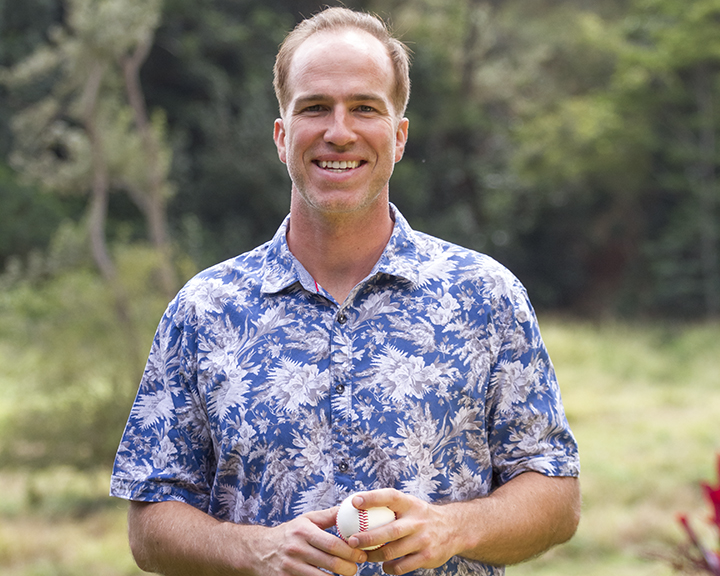
Francesco Garripoli does qigong. Courtesy photo
Fit as a Musician
Francesco Garripoli
by Anne E. O’Malley
Musician and composer Francesco Garripoli crackles with energy. Onstage with the Kaua`i Vibe Tribe — a band whose members vary — he’s playing and singing his heart out on his compositions.
“People dance to it, it’s got a funky rock type of feel,” he says of his music.
He’s fit — and it takes less than five seconds with him to get it.
Lean, wiry and animated, he has the appearance of a seeker and says he’s always been hungry to learn. As a kid, he wrote letters to all sorts of spiritual and esoteric groups. His father was amazed at the volume of correspondence Garripoli was getting at age nine.
“I always had a lot of personal experience and visions in my life that give me a sense of more going on than is apparent,” he says.
He left the study of traditional medicine to learn more about energy healing. While it has given him many gifts, one that is part of his daily regimen, and which he travels the world to teach is qigong, a Chinese system of physical exercises and breathing control.
Garripoli says an early mentor who introduced him to energy healing taught him an important thing.
“It’s the image we hold of this world that affects the world we live in,” says Garripoli. “He used to call it translate — translate what you’re thinking and see the world for what it is and you realize its infinite potential.”
Garripoli met 90-year-old masters of qigong in China who understood breathing, stretching, who could touch their toes and exercise for an hour without sweating. He learned there are over 150,000 styles of the ancient practice and he’s learned many, but a bigger lesson is not to get locked into any particular one.
“It’s easy to find a solution and think that’s it. In fact, it’s a portal to open your mind. I don’t believe there’s any one system, but when we shift out of our limitation of our view of the world, we see possibilities.
“My qigong and bicycle riding and weeding are the deal breakers,” he says. “I can’t have a day without it — at least five miles a day doing a power sprint on my mountain bike, 10 to15 minutes of qigong, stretching, and about 30 minutes weeding. Connection to the ` aina is critical to me.”
Garripoli says that from a young age, “music has been that place to retreat to. I’m a songwriter, so it’s about journaling your experience, so when the world got crazy, I could pick up my guitar and practice, and became reflective.”
There’s a notion among the non-musician world that music must be drug-fueled.
Says Garripoli, “I think I was lucky enough to hook up with musicians who didn’t do music from the angst side. A lot of musicians use the music to process the angst, and that’s when there’s smoking and drugs and alcohol. But when you do it from joy, you can stay up all night!”
Where he goes, Garripoli’s guitar goes with him.
“I travel around the world,”” he says. “I’ve played with musicians in China — they have their 21-string harp, the gu zheng, and I join with my guitar.
“When I go to Italy, I’ll play with traditional instruments and they bring out a cupa cupa, a rhythm instrument. Imagine a drum with a stick through the skin and you move it up and down and it’s hundreds and hundreds of years old.
“We’ll play for hours. Music is such an international bridging tool. In Thailand, to pull out guitar and have a whole village come out for that — you don’t need drugs for that. There’s something better than drugs for that.
Discover more from ForKauaiOnline
Subscribe to get the latest posts sent to your email.










Leave a Reply